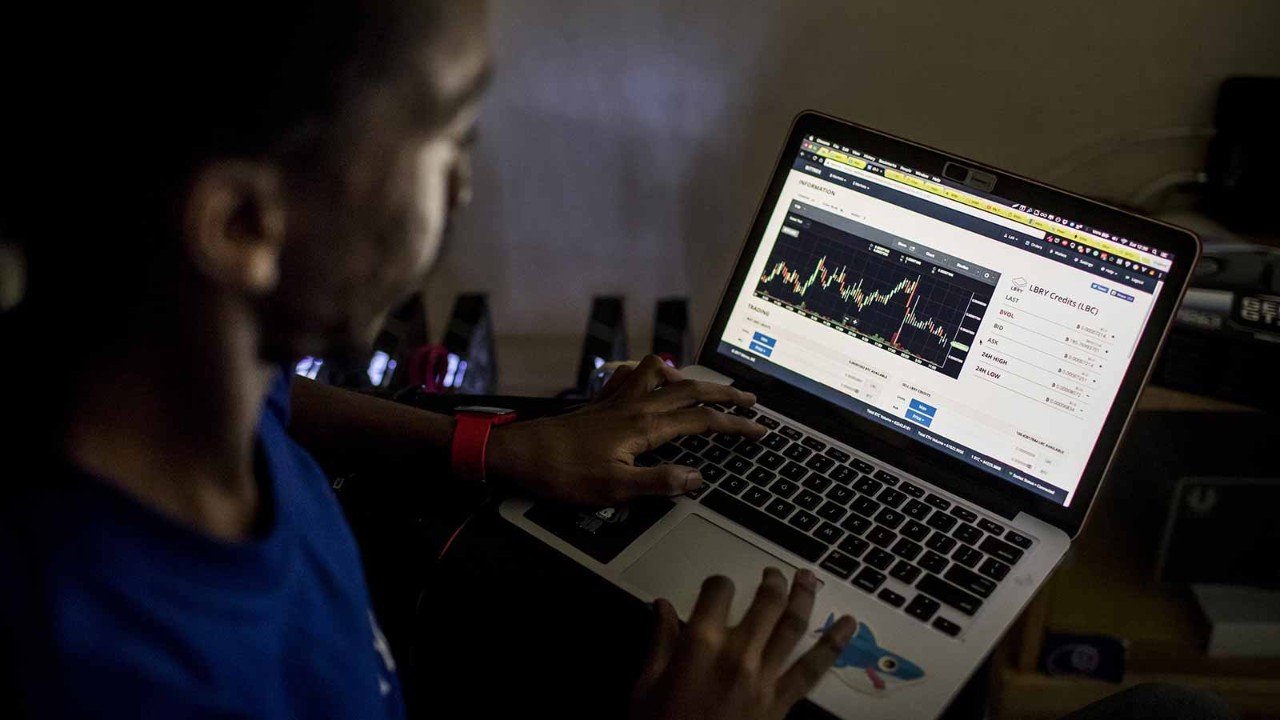
News that the Central African Republic (CAR) has adopted bitcoin as legal tender took most observers by surprise. And more countries might follow if the country's claims that the move will drive economic growth prove accurate.
In April 2022, CAR became the first on the African continent to adopt bitcoin and other cryptocurrencies, and only the second in the world to do so – the first was El Salvador, in September 2021.
Allowing bitcoin to be used legitimately could add impetus to the demand for internet services
There were a number of reasons why CAR’s move came as a surprise. Despite being a gold-, uranium- and diamond-producing country, it remains one of Africa’s poorest, least developed nations. It has, according to Reuters, only an 11% internet penetration rate; only 14% of the population has access to electricity; and fewer than half have a mobile phone.
However, allowing bitcoin to be used legitimately as currency could add impetus to the demand for internet services in the country.
Secondly, CAR is one of six African countries that use the Central African franc (CFA), a regional currency tied to the euro, backed by France and controlled by the Bank of Central African States. Some see the crypto move as undermining the franc, as the current government, led by President Faustin-Archange Touadera, leans more towards Russia’s sphere of influence in the region.
Security concerns
An African economic observer notes that distrust of authorities and their ability to manage economies could lead to a greater uptake of cryptocurrencies generally, particularly among younger generations.
According to another expert, however, the advantages could be outweighed by the loss of control over monetary policy and security issues. ‘One attack and the economy could collapse,’ says Sandra Chogo, an auditor and blockchain trainer in Tanzania.
The International Monetary Fund and World Bank also signalled warnings, citing respectively ‘transparency, legal and economic policy risks’ and ‘potential implications for financial inclusion, the financial sector and public finances in general’.
Low-income countries suffer because their currencies are extremely vulnerable to market changes
Wider prospects
Longtime crypto supporter Nigel Green, CEO of asset manager deVere Group, predicts that at least one more African country could join this exclusive club by the end of the year.
‘We can expect an increasing number of countries to follow the example of El Salvador and the Central African Republic and adopt bitcoin as legal tender,’ he says. ‘In Africa, we believe Tanzania could be one of those countries. Its central bank said last year it was working on a presidential directive to prepare for cryptocurrencies.'
‘Adopting cryptocurrency is more attractive to those countries with a track record of financial instability’
Inflation risk
Green adds that low-income countries suffer because their currencies are weak and extremely vulnerable to market changes, triggering rampant inflation. This is why most developing countries become reliant upon major ‘first-world’ currencies, such as the US dollar, to complete transactions.
However, this comes with its own set of problems. A stronger dollar or euro, for example, will weigh on emerging-market economic prospects, since developing countries have taken on so much dollar- and euro-denominated debt in past decades.
El Salvador warning
‘Adopting cryptocurrency is more attractive to those countries with a track record of financial instability,’ Green argues. ‘They immediately have a currency that isn’t influenced either by market conditions within their own economy or directly from another country’s economy.’
However, others point to the limited success of El Salvador’s move into cryptocurrency as a warning. Three US economists – Diana Van Patten, Fernando Alvarez and David Argente – recently published a study of bitcoin adoption in the Central American state. Their findings, based on a poll of 1,800 Salvadorans, suggest that outside of young, educated, tech-savvy men, durable interest in bitcoin has not materialised.
As such, it could be an uphill struggle before the move to virtual legal tender gains momentum elsewhere. The recent fall in cyptocurrency values (see graphic) will have put a break on these nascent moves, but as one African economic observer says: ‘We have weak currencies already, and the world is becoming more global. Different countries will, therefore, look at adoption from different perspectives.’
Ready for crypto?
According to the World Bank, the government of the Central African Republic (CAR) has improved public financial management significantly, including through digitalisation of services and tax administration. To support the process, the bank has approved a US$35m grant for the Public Sector Digital Governance Project and US$30m for the Investment and Business Competitiveness for Employment Project.
‘Improving public financial management, transparency and efficiency is central to the World Bank’s partnership with the Central African government, as is creating job opportunities for youth through a better private sector development,’ says Han Fraeters, World Bank country manager for CAR.
However, the bank also reports that weak governance is a key challenge in CAR, which ranks 154th out of 180 countries in the 2021 Transparency International Corruption Perceptions Index. The bank notes that the small private sector has 'limited access to finance, inadequate infrastructure, lack of skilled workers, deficiencies in the legal and regulatory frameworks, and a fragile security environment’.



